What’s worse than living in the modern age without a cell phone plan? Having cell phone plans that suck. As an expat, I thought Germany would be like the UK flush with unlimited data plans for a very cheap price. This is not the case. German mobile carriers are quite expensive in comparison and the service can be really lacking in the countryside which I’ve spent quite some time exploring already. In fact, Germany consistently ranks low in terms of coverage and 4G speeds in comparison to its EU neighbors. It’s pretty crazy how vastly different mobile plans are in the region like my crazy cheap sim cards in Georgia.
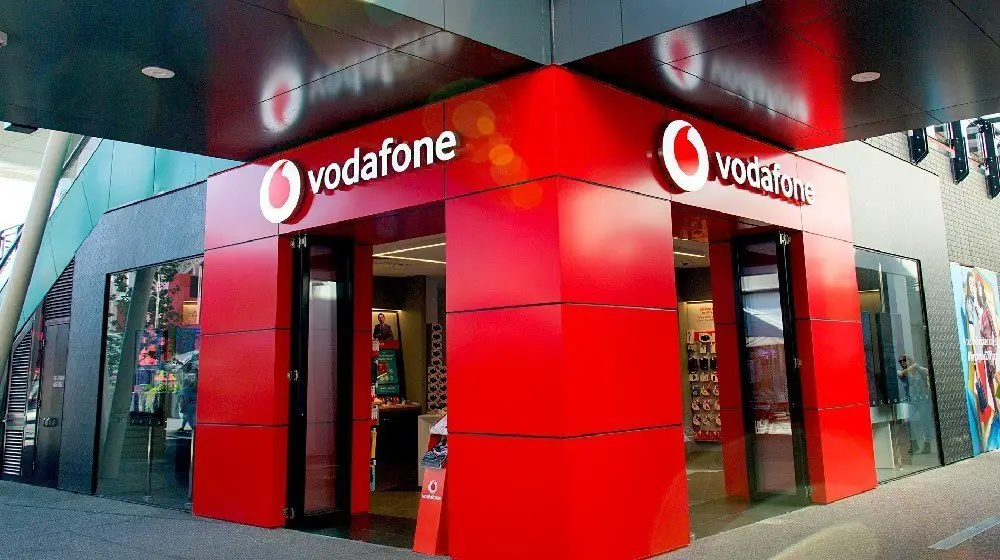
This post will go into detail about contracts, prepaid (pay as you go) plans, and which contract you should get for what purpose.
This post is all a part of my guide to living in Frankfurt, Germany where I list out all the things you need to know as an expat in Frankfurt and Germany.
Overview of German mobile Plans
All in all, I’ve found that German mobile plans to be on the pricier side. In this day and age, my usage is primarily centered around data. Being an expat, I have very little use for old school phone calls, and almost nobody in Europe text messages preferring Whatsapp instead. Everyone here uses whatsapp so really, all you’ll need is data. I think overall as an expat, you can spend a lot of money per month (€50+ per month) or very little (€10 per month) depending on your usage habits, particularly around data. I go into detail about this on my cost of living in Germany post!
Data in general is not cheap. Coming from an unlimited plan in the US, I was used to using whatever data I wanted, whenever I wanted. On average, I used somewhere between 8-12GB a month and I wouldn’t even consider myself a heavy data user. Everything from YouTube and watching Instagram stories is data intensive in this day and age.
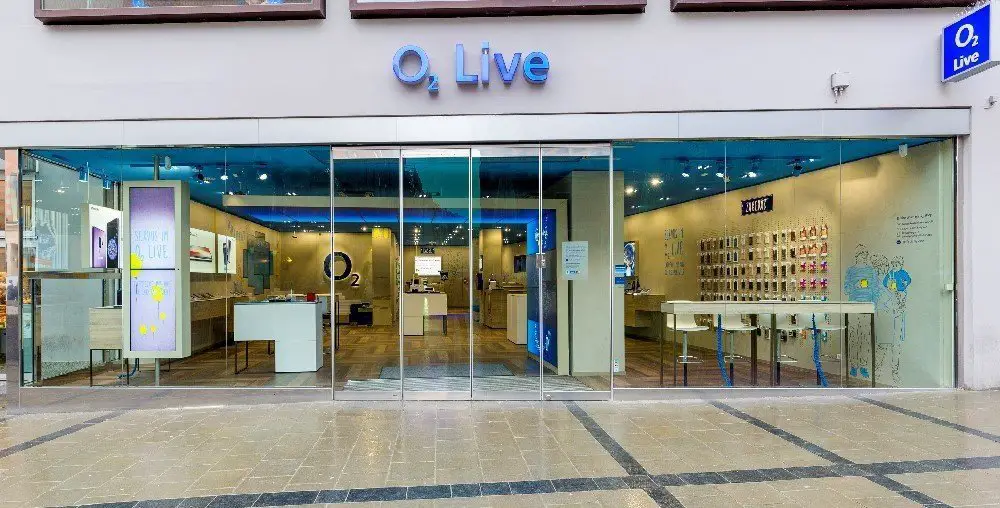
Mobile Networks in Germany
The entire mobile phone network of Germany is owned by three companies (Netzbetreiber):
- T-Mobile (Telekom)
- Vodafone
- O2/E-Plus
I’ve dabbled with service plans from all of these carriers. I would rank them in that order with T-Mobile being the best in terms of coverage and speeds. I think T-Mobile is ahead by a pretty large margin too.
As you can see from the Opensignal analysis below, T-Mobile wins most of the awards with Vodafone grabbing a few. O2 is clearly in 3rd place.
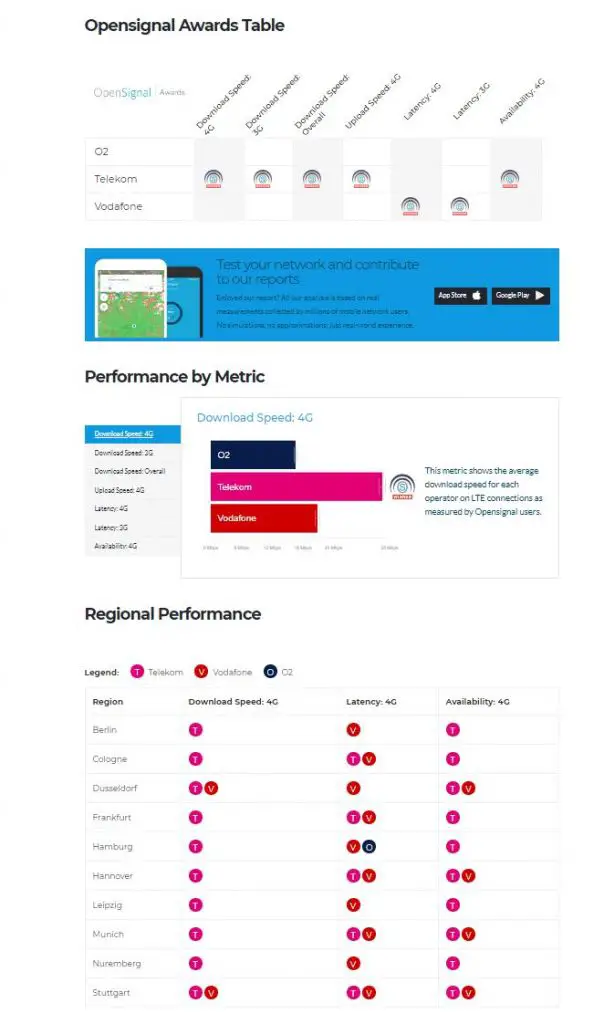
Signal Quality and Strength
Again, T-Mobile is by far the best network in Germany.
O2 which acquired E-Plus is probably the slowest but has the cheapest plans by far. You get what you pay for but the contrast can be quite stark with T-Mobile being considerably more expensive than O2. If you’re looking to visit the countryside often, you’ll be struggling to find service in many places as the coverage just isn’t as vast. Vodafone is somewhere in the middle of the pack.
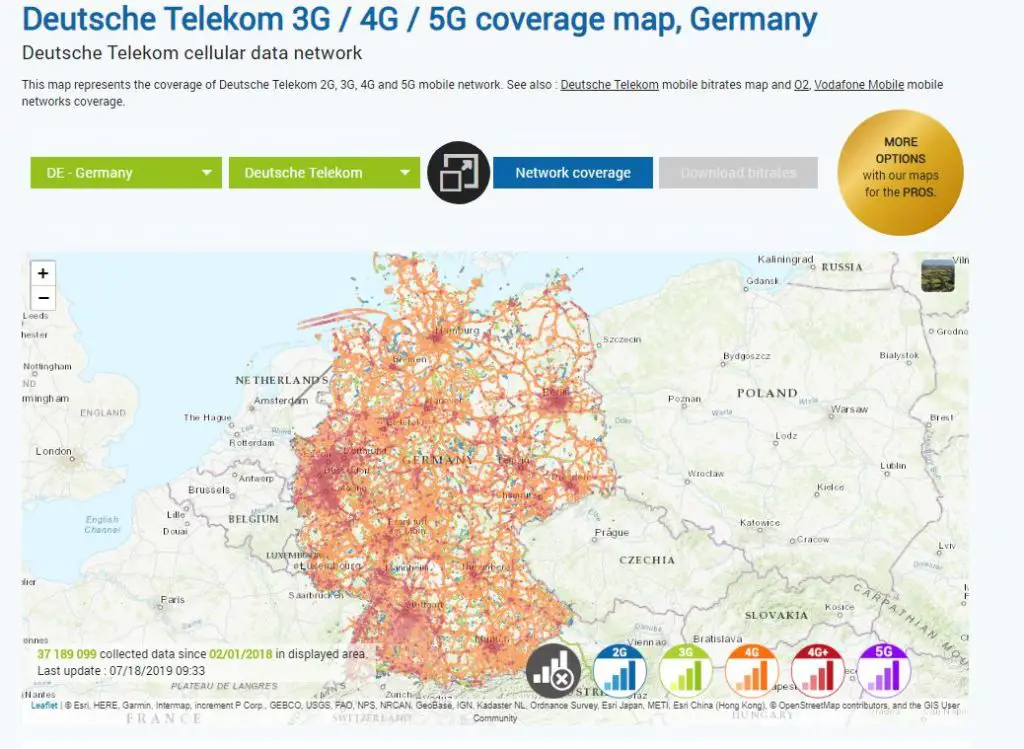

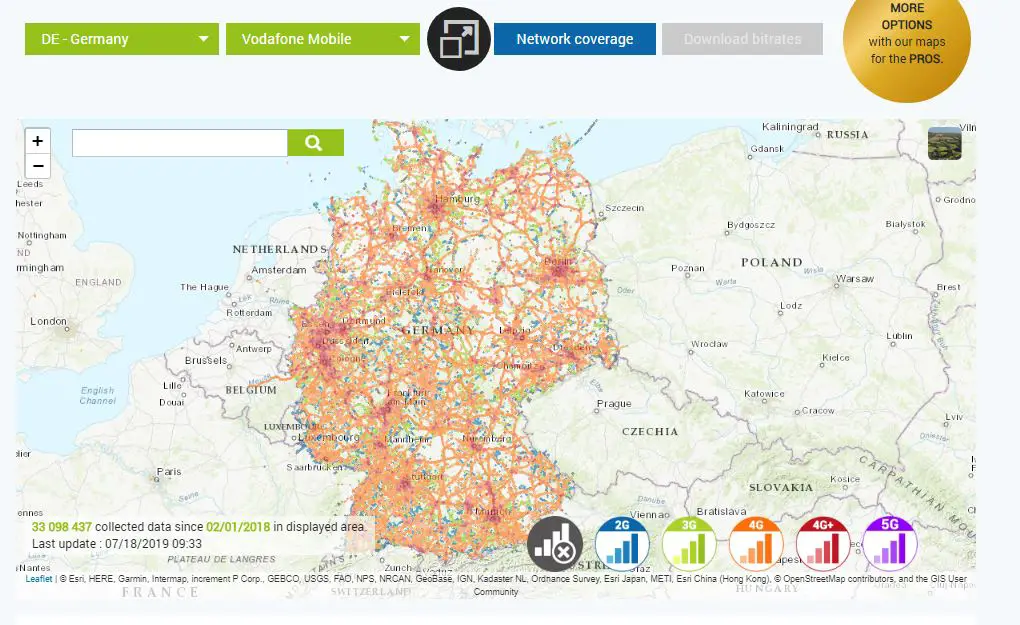
If you plan on traveling to Germany’s countryside often, just note that there are lots of dead spots all over the country with either 2G service or just no service. You would think this would only be in really remote farming areas with no people around you but I’ve driven into villages where there are probably thousands of residents and not had service. It’s all just part of the fun.
Unlimited Data plans
In this day and age, I find myself struggling to keep my data usage down. Even with having wifi everywhere, I still see my data usage increasing quickly even though I feel like I’ve not used much. If you’re like me and are used to having unlimited data plans, Germany is not the right place.

I’ve rarely found true “unlimited” data plans in Germany and the ones that I have found are very expensive. Telekom (T-Mobile) for example has an unlimited data plan with unlimited text and calling for €80 a month. This does not include any phones on contract but is just for the data plan itself.
German Mobile Plans From Resellers
While there are only three major carriers in Germany (Telekom, O2, Vodafone), there are countless mobile resellers also sell mobile plans. These resellers lease mobile spectrum from the major carriers and then offer it to their customers under their names. Generally, resellers have the cheapest plans and you can expect to save upwards of 50% versus getting a plan from the big 3 carriers.
How can they offer cheaper plans than the three main carriers when you’re just using their network anyway? Most of these resellers are online only which reduces operating costs significantly.
Most of the resellers use the O2 network which is the slowest but this makes sense in why they can offer such cheap rates. Congstar is the only reseller that offers plans on T-Mobile’s spectrum. While Congstar is more expensive than other resellers, you can see it is significantly cheaper than getting a plan straight up from T-Mobile from the pictures below, especially if you’re primarily focused on data usage.
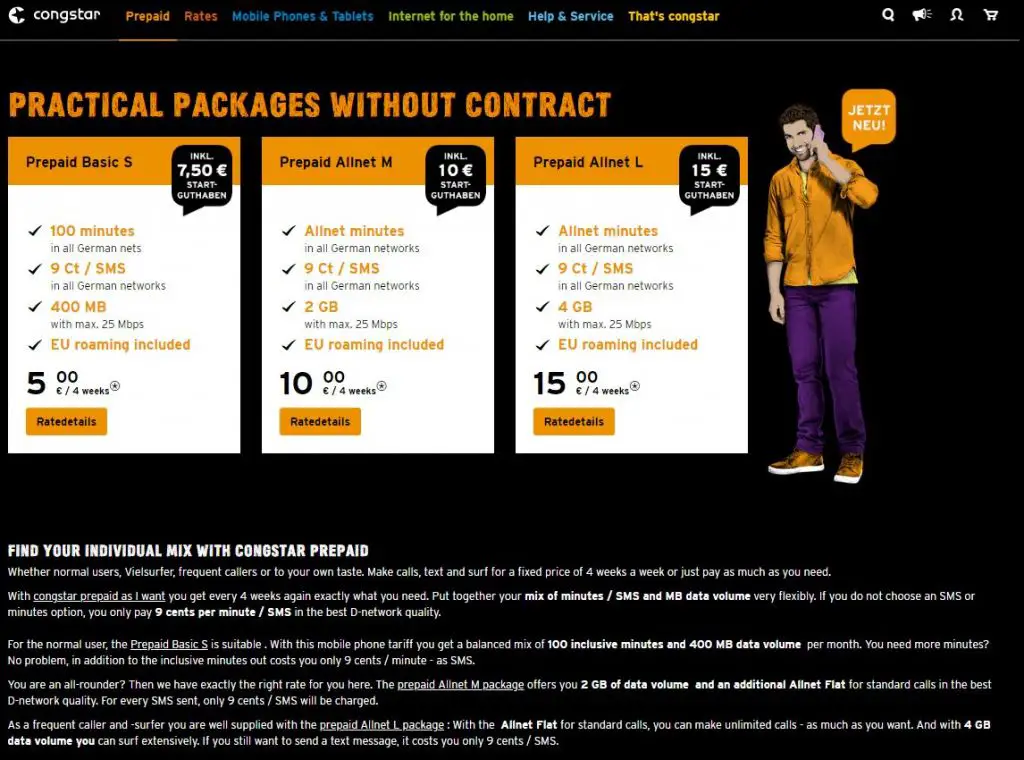
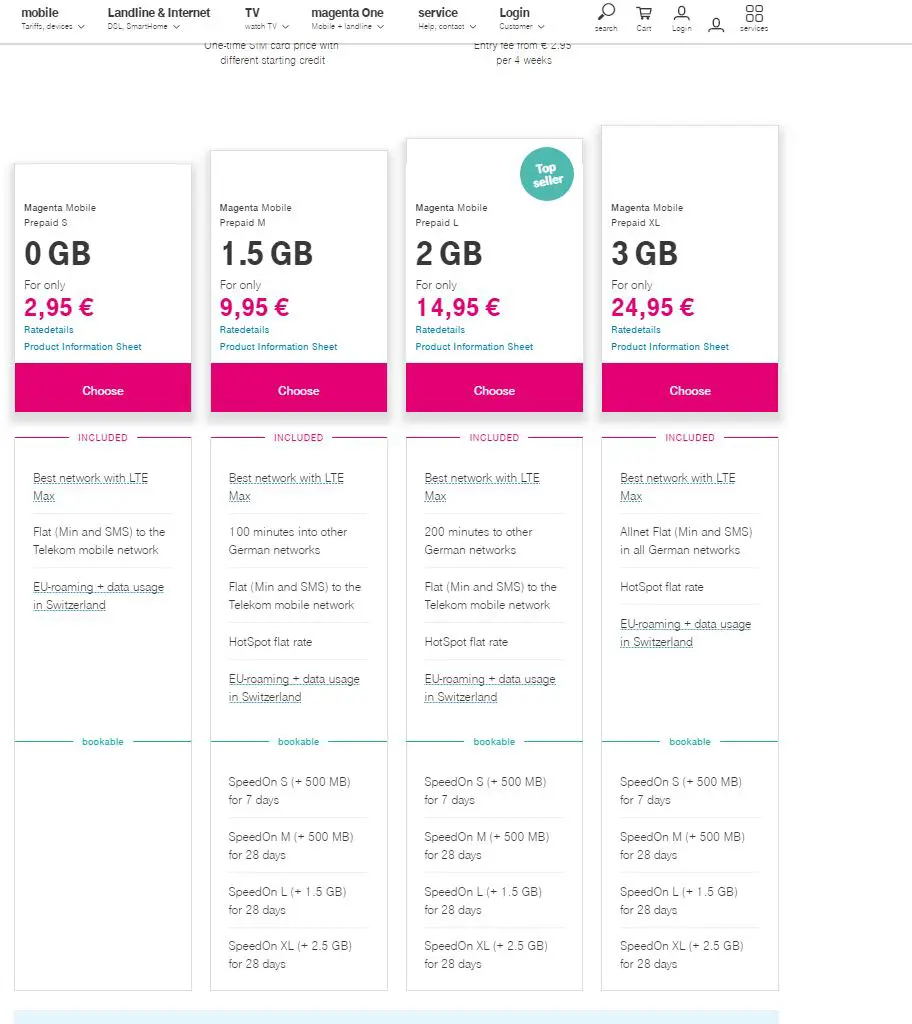
Saving money using Mobile resellers
Buying a plan with a reseller or third party mobile provider is how you can really save money on German mobile SIMs. The one caveat is that you must be able to keep your data usage down. Most of the reseller plans I’ve seen cap around 5-8GB. If you can keep your data usage in the 3-5GB range, you can expect to only pay €8-15 a month which is a steal.
Once you run out of data, you will automatically be put onto 2G speeds until you decide to top up your data. Most resellers will allow you to top up and charge around €5 per GB which is insanity.
Resellers offer plans contract plans and pre-paid options. Some resellers don’t even change the price between the so I would always recommend going with the prepaid option.
You will need a German bank account however as these providers never accept credit card, but only bank transfer (with an IBAN).
Mobile telephony providers in Germany
- Aldi Talk (by O2): to be purchased at Aldi only
- O.Tel.O (Vodafone): to be purchased at Media Markt, Saturn, Euronics
- Congstar Prepaid (by Deutsche Telekom): to be purchased in T-Stores , Kaufland, Real and Netto
- Lidl Mobile (Lidl): to be purchased at Lidl only
- Blau (O2): to be purchased at Aral, Netto, Real, Rossmann
- Edeka Mobile (by Vodafone): to be purchased at Edeka only
- Tchibo Mobile (by O2): to be purchased at Tchibo only
- winSim (O2)
- SimYo (O2)
- Sim24 (O2)
- 1&1 (O2)
- Sim.de (O2)
Using WinSim and Sim.de
After looking through countless resellers, I opted to go with Winsim as they had cheap prices and had no price differentiation between on contract and prepaid options. I opened my account when they had a promotion of 4 GB of data for €8 a month on the prepaid model. I think this is incredibly reasonable and I’ve been working hard on keeping my data usage down.
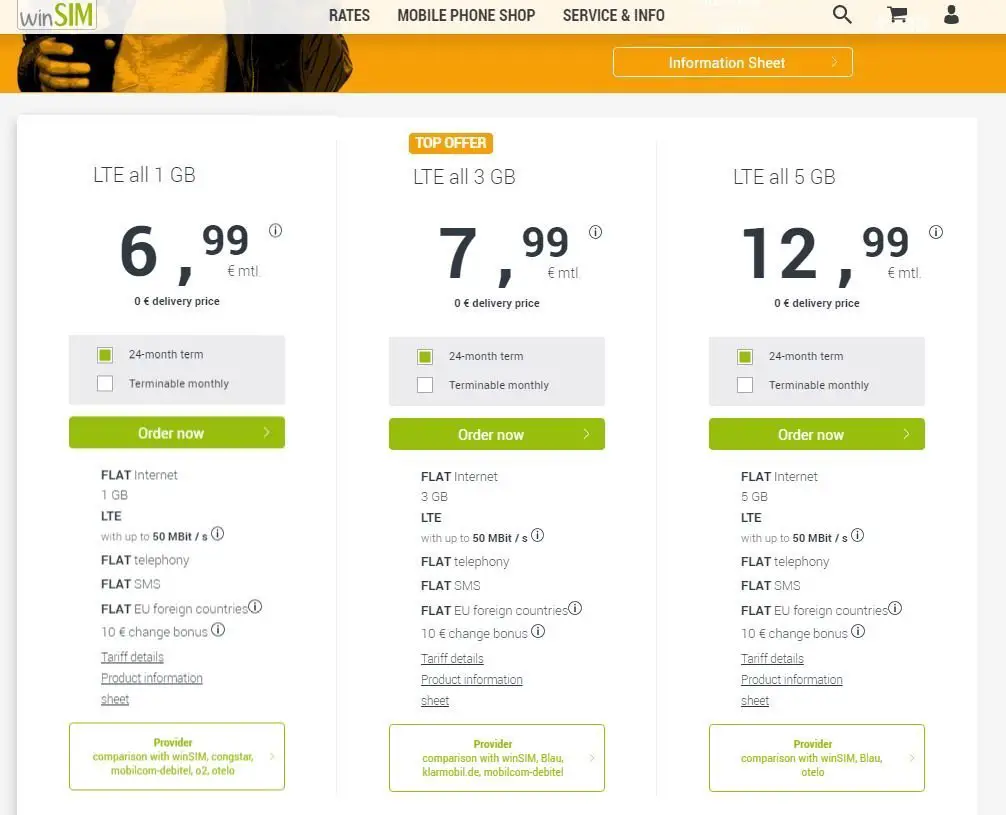
As far as service and reception goes, I’ve been very satisfied with the speeds and coverage. As you’d expect, the coverage is weak when you go into the countryside but living in Frankfurt, it more than suffices.
Update Jan 2021:
I’ve since moved to Sim.de as I found an even better deal with them for the same price! Like Winsim, it’s another reseller of O2 airspace and functions in the exact same way. The websites even look the same it’s as if it’s just one company making all these smaller companies. Nevertheless, I was able to get a 7GB package for €8 with a €10 activation fee so I can be month to month.
The service and speeds are the same as Winsim because in the end they use the same provider (O2).
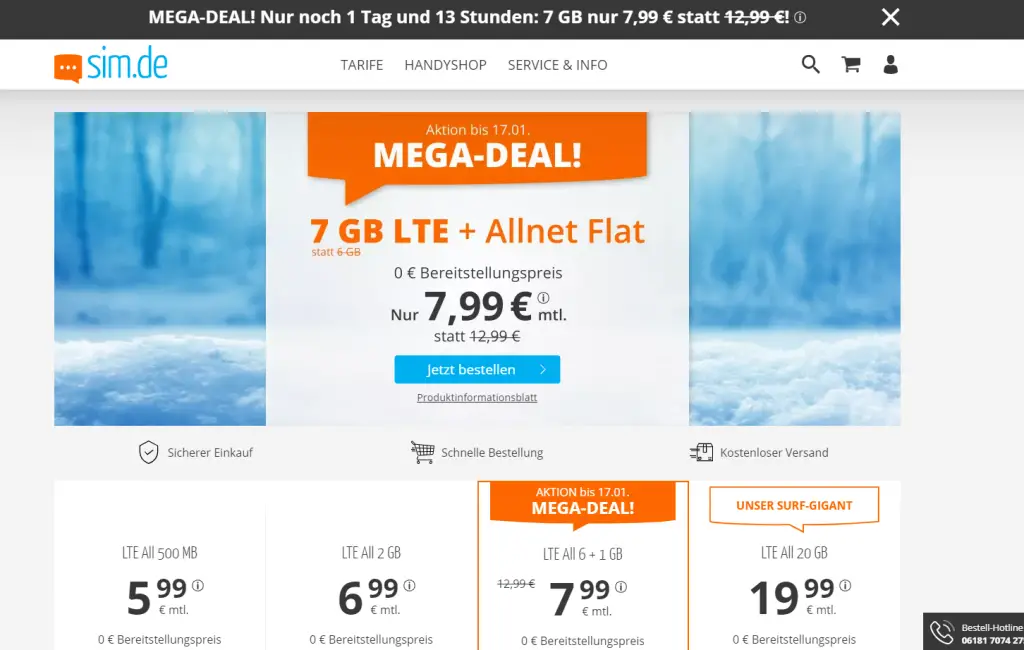
Roaming in the EU
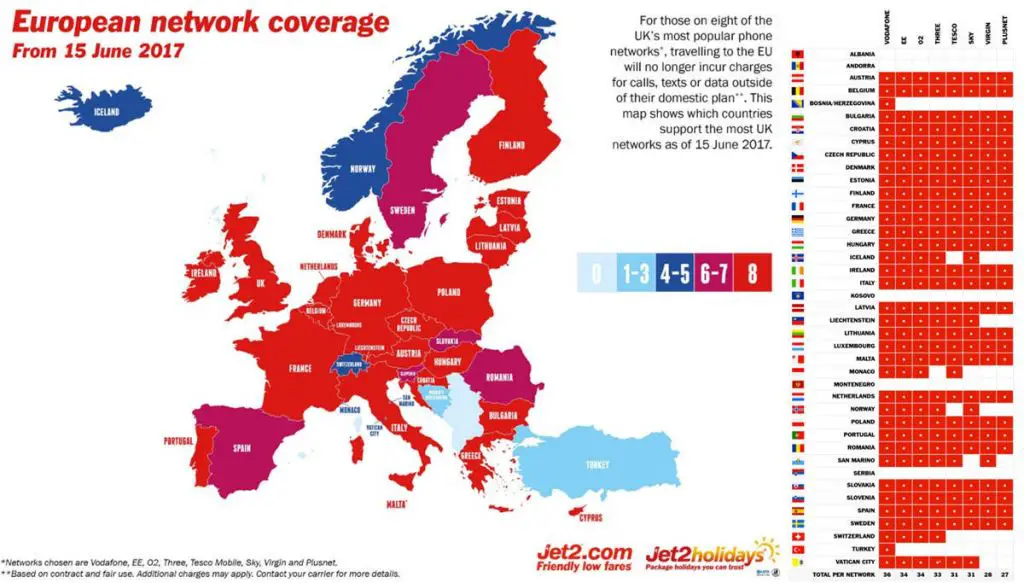
As of 2017, the EU has officially abolished roaming charges for those traveling around the EU. This means that any German mobile plan will mean you can use your data allotment free of charge in any country within the EU. This also includes non-Schengen countries like the UK. Switzerland is an oddball with some plans allowing you to roam for free and others not so much.
However, while data is free of charge, calling and texting will incur charges that will differ from plan to plan.
German Mobile: Contract or Pay-as-you-go?
Most people today choose to buy into a contract simply because it is easy. You can choose how much data you would like per month, how many texts and/or calls you plan on making and then alter your package to suit your needs. However, if you’re planning on spending only a few months in Germany, then a pay-as-you-go option might be just what you need.
Contracts with the major providers, such as t-mobile and Vodafone are often binding for about 24 months in order to pay off the new phone you receive with it. If you don’t want the phone, it’s cheaper per month, but you’re usually bound for the same time. Contracts in Germany are pretty inflexible and trying to cancel the contract early will lead to huge headaches.
As an ex-pat, I’m not sure how long I’m committing to the country yet so for me, a prepaid plan is the way to go. I would only recommend a full contract if you know for sure you’re in Germany for the long term. Even then, it’s hard for me to recommend it because you may decide you hate your provider and want to switch but a contract will prevent you from doing so.
I am paying into a contract that can be canceled at anytime (however, you will be billed until the end of the month). I am also able to call the company when I leave for a couple of months and won’t be using my cell phone. They will put a hold on my account until I return (that means I don’t have to pay for the time I wasn’t using my cell phone).
You see why I’m so happy with my plan? It might not be the best cell phone plan in Germany, but it’s perfect for me.
Prepaid Sims for Tourists
As a tourist, you’ll be looking solely at prepaid SIM cards. These are available in grocery and convenience stores like Aldi and Rewe. They are also available at specialty “handy” stores which is what Germans called their cell phones.

Regardless of where you buy your SIM, it needs to be registered, and a data/voice package set up. Registration can be done in official carrier stores and some major electronics stores, or via a video chat-based system called WebID.
Generally foreign credit cards are not accepted for buying data and voice packages, so either use cash or have a German friend handy who has a German bank account
Vodafone is generally the go to provider for prepaid SIMs for tourists in Germany. You’ll need your passport along with a German address. For addresses, you can just use your hotel, hostel, or Airbnb and it should suffice. The whole process should be relatively straight forward and you shouldn’t be too pressed for issues.
Costs
A SIM package with 2GB of data, plus 200 minutes of phone and text credit, costs €9.95 and is valid for 30 days. Other packages with less or more data are also available. Registration should technically be free, but it’s not uncommon for Vodafone stores to charge an unofficial fee of up to €10 to do it.
The Telekom SIM package I was offered had less data for more money, and the store didn’t offer any o2 or reseller SIM’s.
To check the balance on my Vodafone SIM, I dialed *100#
Topping Up
Topping up is as simple as going into a grocery or convenience store and finding the cards hanging by the checkout lanes. I found Vodafone top-up cards at REWE and Aldi grocery stores, and most gas stations also have them.
Top-ups can be done at the network’s websites, but often only accept German credit cards. There are third-party top-up services such as prelado.de that may accept some non-German credit cards but also have an option to use Paypal. An alternative payment site is aufladen.de, though it charges a transaction fee.
The most reliable way is going to a physical store, as they accept both cash and foreign credit cards. It’s quick and easy, and the top-up cards are available everywhere.
Using a SIM from another country
German mobile plans aren’t very cheap but because of the EU roaming rules, any provider from any country can roam freely without issue in Germany. If you’re not spending months in Germany and are coming from another EU country, then it may be strategic to get a SIM card in that country before coming to Germany. For example, the UK has solid prepaid plans for a fraction of the cost of Germany.



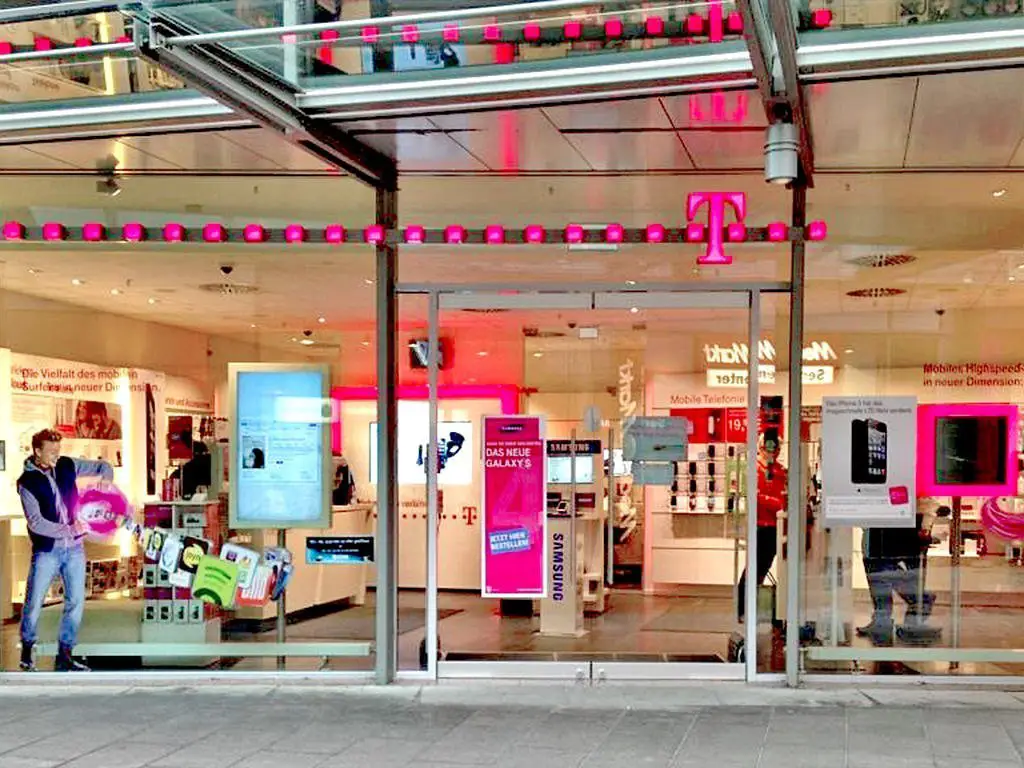





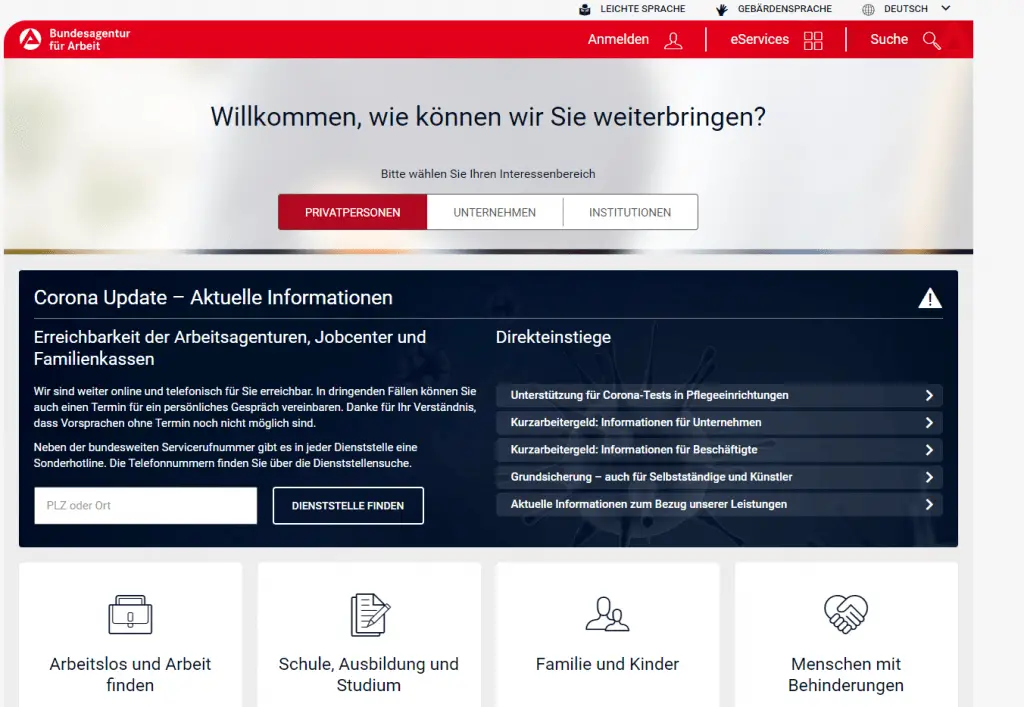
Thanks for clearing up a lot of questions I had about mobile networks in Germany. This was very helpful!
No problem, glad it helped!
Hi Johnny! Not sure why but I can’t seem to see any post on this topic.
Hi Clarissa, thanks for bringing this up to me! Who knwos how long it’s been down but it’s fixed now. Thanks again!